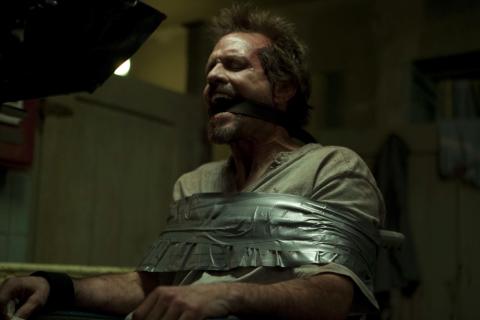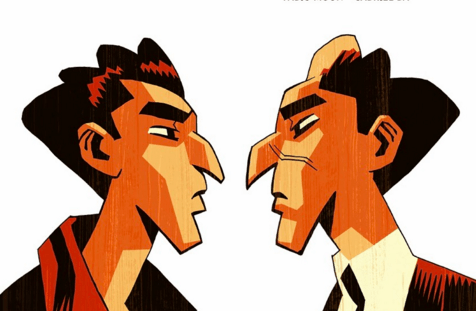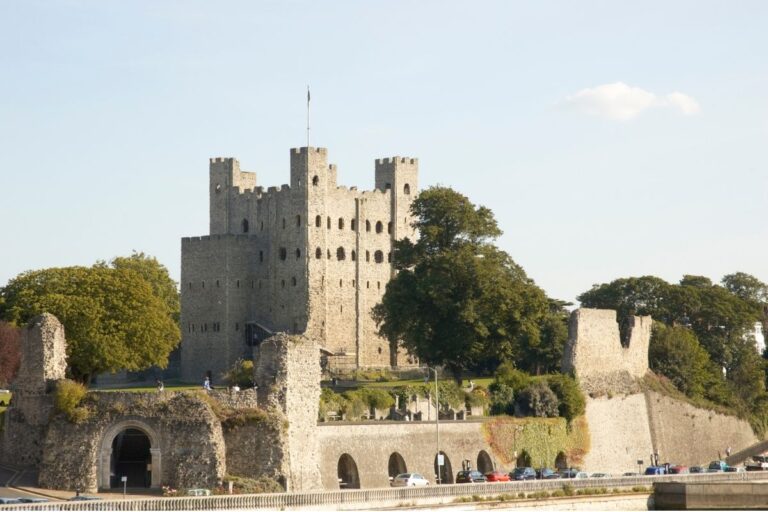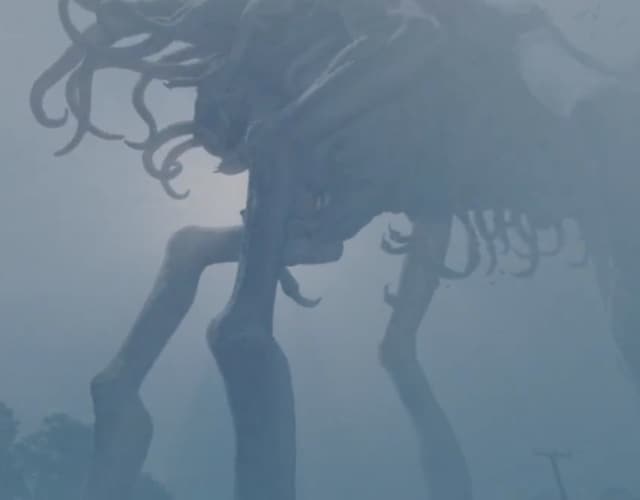 Les Chevaux de dieu (English title: God’s Horses)
Les Chevaux de dieu (English title: God’s Horses)
Directed by Nabil Ayouch
Written by Jamal Belmahi
Morroco/France, 2012
What is it that is so controversial about Islam that more than a few people get antsy whenever said religion is brought up as a topic of conversation? It is actually more violent than other religions? Is there something else about, something specific, that rubs outsiders the wrong way? It seems strange considering that an immense portion of Earth’s inhabitants adhere to its teachings, about one quarter to be precise. How can so many people be wrong, or be practicing the ‘wrong religion?’ Be that as it may, the fact remains that, in this early 21st century, the world’s population is keeping a keen eye on Islam in all its depictions, and not always for the most enviable of reasons. As with so many religions, there are practitioners who take their faith to the extreme, displaying an unhealthy mixture of mistrust and distaste towards those who have chosen a different path. Is religion, be it Islamic or otherwise, partly to blame? What exactly does bring someone over the edge towards violence through religion anyways? Director Nabil Ayouch takes a provocative look into how that might occur in his film, Les Chevaux de dieu.
It is the mid 1990s in a slum on the outskirts of Morocco’s most famous city, the one and only Casablanca. Two young siblings, Hamid and Tarek (who goes by the name Yachine, a world class Russian soccer goalkeeper) are spending their days either on the football pitch in the case of Tarek, or in the backstreet allies working errands for small time gang leaders, as is the case for Hamid. Tarek is the gentler of the two, wanting to do well but rarely respected, nor awarded the genuine opportunities to prove his worth, whether towards his mother or his brother. Hamid is by far the more reckless of the two, going so far as to encourage Tarek and their friends to go on a drinking binge one night (these are but 12 year old boys!). The years go by and Hamid’s (now played by Abdelilah Rachid) connections to loan sharks and hoodlums land him jail, thus forcing all the pressures of keeping the family’s budget in order onto Tarek’s (Abdelhakim Rachid) shoulders. Times are tough, and Tarek’s attitude itself becomes tough. Ironically enough, when Hamid is released from prison two years later, he is a changed man, having dedicated himself to Islam with a newly found brotherhood. He encourages Tarek, along with childhood friends Nabil (Hamza Souidek) and Fouad (Ahmed El Idrissi El Amrani), to join him. The community is tightly knit and offers great support for errant youth. The more time they spend with the group and the more teachings they take in, the more it becomes clear that the group’s ultimate aims may be far less harmonious than originally anticipated…
It remains to be seen just how much visibility Les Chevaux de dieu will be privileged with. Considering that it played at Cannes (which can give just about any film a serious shot in the arm) and has made the rounds at a respectable amount of high profile festivals, the odds are that by the end of the year, and possibly into next year, enough people will have taken notice of the masterful, touching, daring and controversial film director Nabil Ayouch has constructed. One certainly hopes so, for his is a movie that challenges in the most unexpected ways. It is a film which takes a brutally honest look into what might happen in a religious community when a few bad seeds take advantage over the gullible, the uneducated and aimless, thus sending them down a path no human should ever tread, regardless of colour or creed. Evidently enough, Ayouch has chosen the touchiest of subjects for his latest project. It is no secret that Islam is in the hotseat at the moment and has been for the better part of the last 11 years since the eventful day of September 11th, 2001. Considering how the ongoing debate about the merits of religion continues to stir up passions, on both sides of the field, it can be argued that the movie is deliberately walking in a landmine littered field. Any false step and its face is completely blown off. That was undoubtedly a risk Ayouch was aware of heading in, the potential to strike the wrong chords always in the back of his mind, and probably in the back of the minds of nearly everyone working on the project. Kudos, therefore, to everybody for making such a delicate cinematic experience, where the emotions are in the right place and there is nary a false note in the entire running time.
Among the many things which make the movie so compelling, so fascinating, is its very depiction of the religious community Hamid and Tarek embrace by the midpoint of the picture. Both protagonists come from a background ripe with poverty, crime, high tension and a series of other issues which typically plague the lower classes the world over. Suddenly, there is a venue to help people such as them, an organized gathering of individuals, some of whom surely emerged out of similarly frustrating backgrounds, who then offer forms of enlightenment. It might come in the form of self defence lessons, picnics, simple talks about various facets of life, and faith-based lectures. All of a sudden, for the first time in their lives, Tarek and Hamid have a place where they are seemingly appreciated for who they are and the potential for good in them. The brothers now have worth. The fact that the film takes the time to elaborate this aspect is arguably what saves it from being Pandora’s Box of embarrassing problems. There are plenty of other marvellous qualities to the film, but had this particular aspect been dealt with cheaply, or unevenly, than Les Chevaux de dieu could have just as easily been a disaster waiting to strike, considering the direction the film takes in the final forty minutes or so when the young men become soldiers of god by engaging in a suicide bombing mission (the film is in fact inspired by an actual kamikaze bombing which occurred in Casablanca in May of 2003).
Director Ayouch also displays a great amount of skill in having the audience believe that they have been on a real journey with the characters by the end. This is no three hour long marathon, yet when the end credits role, it honestly feels as though a lot has transpired, which requires tremendous storytelling abilities. The characters have changed not only physically from children to young adults, but so have their personalities, their hopes, their goals and, most of all, their convictions. To add even more compelling drama into the mix, the film has one of the two brothers question the virtue of taking their own lives in the process of destroying hundreds of others, the additional twist being that Hamid, formerly the reckless one, not Tarek, is the one who begins to doubt their indoctrination. Both Abdelilah Rachid and Abdelhakim Rachid are great in their roles, with the former practically playing two roles in the same film considering how greatly his character shifts from being a useless hood to a docile man of faith. Abdelhakim’s task differs in that his character’s arc sees him go from a point where hope and honest ambition existed in the face of the odds, only to be replaced by anger towards the world, a man totally dedicated to the cause of war on the enemies of Islam. Two strikingly different roles and both actors are up to the challenge.
Les Chevaux de dieu is the sort of film that, in the hands of less talented filmmaker, could easily be overlooked as nothing more than a misguided attempt at trying to vilify Islam. Instead, it shows the potentiality inherent in religion as a support mechanism while juxtaposing that against the reality that is the misuse and abuse of religion. To top it off, adding a pair of relatable, emotionally rich characters at the center, the film aims top marks.
-Edgar Chaput






